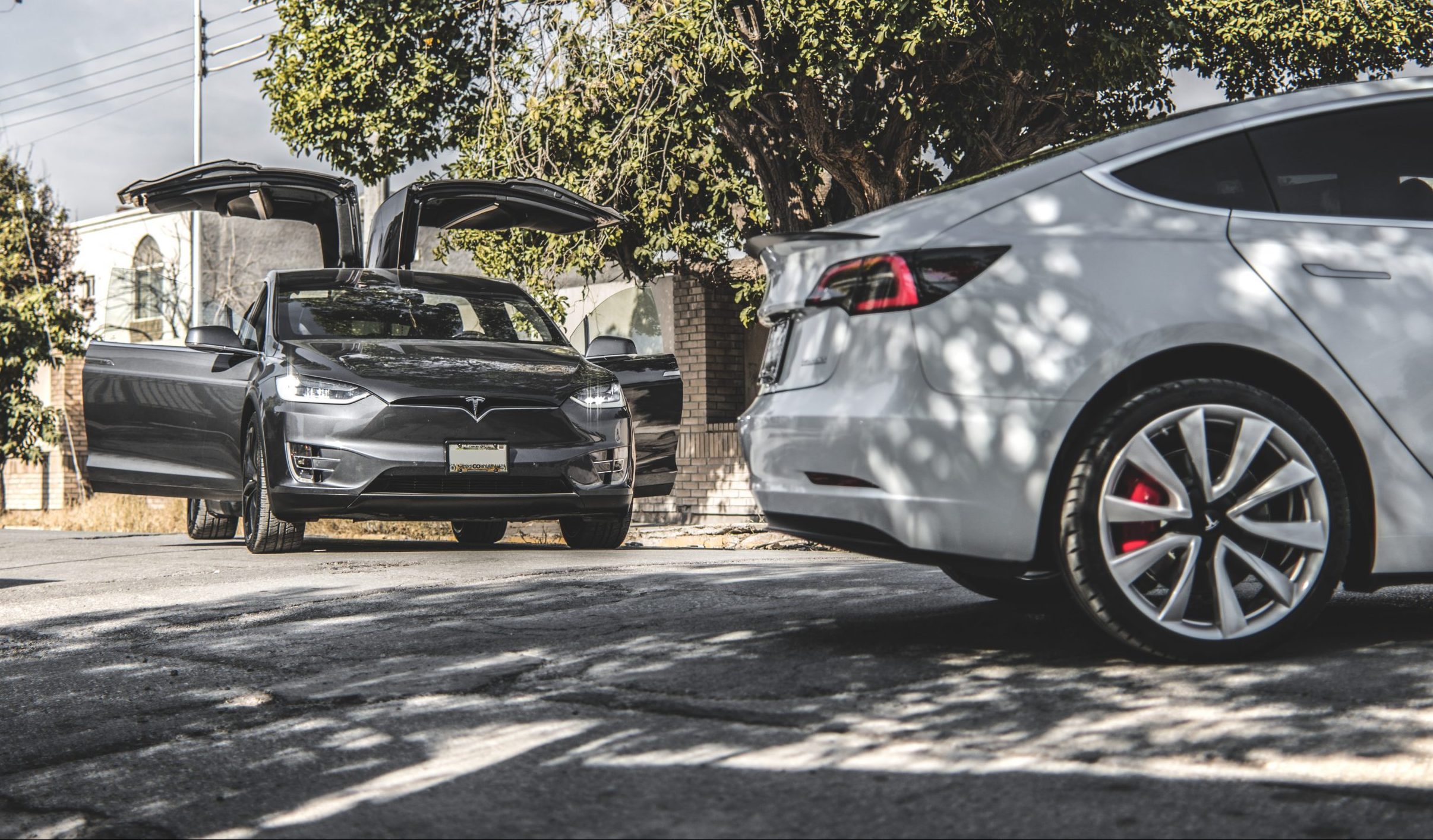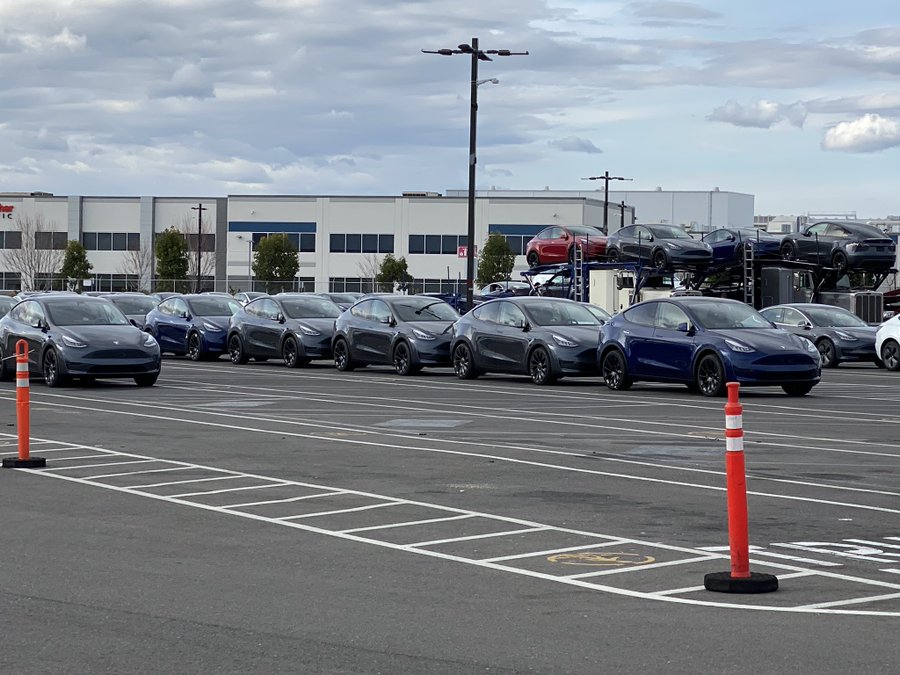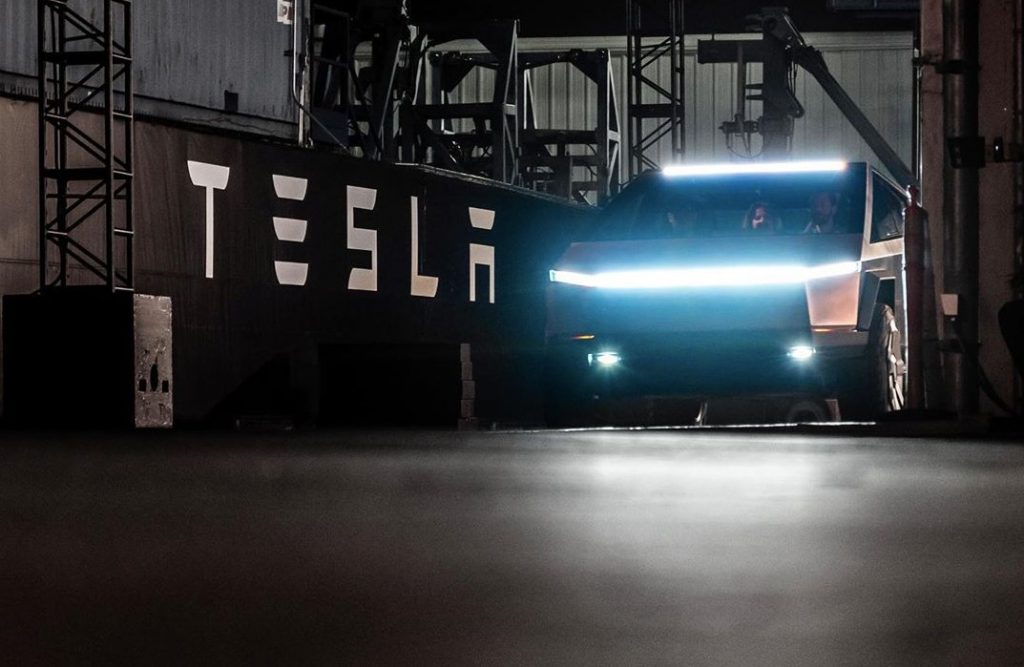

Investor's Corner
Tesla is poised to survive 2020’s worst economic shocks; other automakers, not so much
Just before being proven wrong by Tesla’s first-quarter delivery and production numbers, TSLA bears were hard at work, spreading the now-aging narrative that the company’s electric cars will soon see a drop in demand. Hours before Tesla released its numbers, short-seller Jim Chanos even remarked that he remains “maximum short TSLA,” arguing that the company stands to lose money this year.
What the noted short-seller failed to mention was that this year would likely be downright brutal on the entire auto industry. 2020 only started, but the onset of the coronavirus pandemic has given the whole car market an economic shock that will resonate for a substantial period of time. Tesla will see adverse effects, most likely in the second quarter, but compared to the rest of the industry, the electric car maker may very well be poised to be a company that can not only survive, but thrive in these times of crisis. The same cannot be said for legacy carmakers, or the scheduled “Tesla Killers” that are set to be released in the near future.
Gene Munster of Loup Ventures noted that Tesla’s Q1 production and delivery results show that Tesla is winning despite the current headwinds simply because it has a product that is measurably better than both gas and electric competitors. The Wall Street veteran further added that while the next quarters will be challenging for Tesla and all other automakers like BMW and General Motors, he still expects Tesla to continue reporting 15-25% better delivery results compared to its peers.

A lot of this is due to the company’s products, specifically the Model 3 sedan and the Model Y crossover. Both vehicles are high-volume EVs, and they are designed to disrupt their respective segments. The Model Y, in particular, is designed to be competitive in the crossover market, which happens to be one of the fastest-growing segments in the auto industry today. Munster argued that over time, the price and performance gap between Tesla and its competitors would likely get broader. This is because rivals, such as legacy automakers and their respective EVs, will either have to sell a vehicle that’s at parity with Tesla’s features and range but at a higher price, or a car whose cost is subsidized by the company, resulting in financial strain. For automakers, such is a notable dilemma.
Tesla investor @Incentives101, an economist with a background in macro research, stated in a message to Teslarati that the demand for the electric car maker’s vehicles will largely depend on how distinct they are from other EVs on the market. It’s quite difficult to analyze a product’s demand from a consumer preferences standpoint. In the case of apparel, for example, it is challenging to determine why some consumers prefer Adidas over Nike. The auto industry is quite the same. When one looks at the demand for vehicles, it is difficult to pinpoint why some consumers buy a BMW 3-Series over an Audi A4, or a Mercedes-Benz C-Class; or why some customers buy a Honda Accord instead of a Toyota Camry.
Explaining further, the economist noted that instances such as these usually mean that the products consumers are purchasing are almost perfect substitutes for each other. If one were to study the size, efficiency, performance, and price of any category of cars, one would see that the differences are usually so marginal between each option and segment that consumer decisions often fall on subjective variables such as looks or brand loyalty. This is something that veteran automakers such as Ford rely on, with the company being proud of F-150 owners sticking with the company for years, or at times, even generations.

In the auto sector, there are various tradeoffs that customers are likely to compromise with. For buyers of cars with an internal combustion engine, opting for a low price will likely sacrifice performance, as is the case with the Toyota Camry. Buyers of electric vehicles from traditional automakers, on the other hand, will probably sacrifice something vital such as range for performance, as is the case with the Porsche Taycan. Tesla’s electric vehicles have pretty much eliminated these tradeoffs over time, largely thanks to the company’s own experience in producing and designing electric vehicles and their unique vertical integration, which provides the company unprecedented control over their products and the way they function.
Amidst the coronavirus pandemic, the health and economic shock that the world is facing are unprecedented. These shocks affect everyone, and for automakers, it will all come down to whoever can recover the fastest. Veteran automakers are fighting at a disadvantage as Tesla extends its gap in performance and tech. Tesla, on the other hand, may very well be poised to hit the ground running and crush its competitors in the process. The Model 3 and Tesla’s first-quarter results highlighted how demand for the company’s vehicles would likely be steady. As for demand concerns about Tesla, the economist noted that such concerns remain overblown.
“Until today, demand concerns about Tesla vehicles are overblown and based on a poor understanding of economics. Demand is a function of consumer preferences, basically what consumers value. It is also a function of income, price of substitutes, and few other things. How much each of these variables affects demand is not static. It may be that consumer preferences don’t change but income does, so in a scenario of rapid economic downturn with relatively fast recovery demand for Tesla would behave the same,” the economist wrote.
Disclosure: I have no ownership in shares of TSLA and have no plans to initiate any positions within 72 hours.
Elon Musk
Tesla analyst issues stern warning to investors: forget Trump-Musk feud

A Tesla analyst today said that investors should not lose sight of what is truly important in the grand scheme of being a shareholder, and that any near-term drama between CEO Elon Musk and U.S. President Donald Trump should not outshine the progress made by the company.
Gene Munster of Deepwater Management said that Tesla’s progress in autonomy is a much larger influence and a significantly bigger part of the company’s story than any disagreement between political policies.
Munster appeared on CNBC‘s “Closing Bell” yesterday to reiterate this point:
“One thing that is critical for Tesla investors to remember is that what’s going on with the business, with autonomy, the progress that they’re making, albeit early, is much bigger than any feud that is going to happen week-to-week between the President and Elon. So, I understand the reaction, but ultimately, I think that cooler heads will prevail. If they don’t, autonomy is still coming, one way or the other.”
BREAKING: GENE MUNSTER SAYS — $TSLA AUTONOMY IS “MUCH BIGGER” THAN ANY FEUD 👀
He says robotaxis are coming regardless ! pic.twitter.com/ytpPcwUTFy
— TheSonOfWalkley (@TheSonOfWalkley) July 2, 2025
This is a point that other analysts like Dan Ives of Wedbush and Cathie Wood of ARK Invest also made yesterday.
On two occasions over the past month, Musk and President Trump have gotten involved in a very public disagreement over the “Big Beautiful Bill,” which officially passed through the Senate yesterday and is making its way to the House of Representatives.
Musk is upset with the spending in the bill, while President Trump continues to reiterate that the Tesla CEO is only frustrated with the removal of an “EV mandate,” which does not exist federally, nor is it something Musk has expressed any frustration with.
In fact, Musk has pushed back against keeping federal subsidies for EVs, as long as gas and oil subsidies are also removed.
Nevertheless, Ives and Wood both said yesterday that they believe the political hardship between Musk and President Trump will pass because both realize the world is a better place with them on the same team.
Munster’s perspective is that, even though Musk’s feud with President Trump could apply near-term pressure to the stock, the company’s progress in autonomy is an indication that, in the long term, Tesla is set up to succeed.
Tesla launched its Robotaxi platform in Austin on June 22 and is expanding access to more members of the public. Austin residents are now reporting that they have been invited to join the program.
Elon Musk
Tesla surges following better-than-expected delivery report
Tesla saw some positive momentum during trading hours as it reported its deliveries for Q2.

Tesla (NASDAQ: TSLA) surged over four percent on Wednesday morning after the company reported better-than-expected deliveries. It was nearly right on consensus estimations, as Wall Street predicted the company would deliver 385,000 cars in Q2.
Tesla reported that it delivered 384,122 vehicles in Q2. Many, including those inside the Tesla community, were anticipating deliveries in the 340,000 to 360,000 range, while Wall Street seemed to get it just right.
Tesla delivers 384,000 vehicles in Q2 2025, deploys 9.6 GWh in energy storage
Despite Tesla meeting consensus estimations, there were real concerns about what the company would report for Q2.
There were reportedly brief pauses in production at Gigafactory Texas during the quarter and the ramp of the new Model Y configuration across the globe were expected to provide headwinds for the EV maker during the quarter.
At noon on the East Coast, Tesla shares were up about 4.5 percent.
It is expected that Tesla will likely equal the number of deliveries it completed in both of the past two years.
It has hovered at the 1.8 million mark since 2023, and it seems it is right on pace to match that once again. Early last year, Tesla said that annual growth would be “notably lower” than expected due to its development of a new vehicle platform, which will enable more affordable models to be offered to the public.
These cars are expected to be unveiled at some point this year, as Tesla said they were “on track” to be produced in the first half of the year. Tesla has yet to unveil these vehicle designs to the public.
Dan Ives of Wedbush said in a note to investors this morning that the company’s rebound in China in June reflects good things to come, especially given the Model Y and its ramp across the world.
He also said that Musk’s commitment to the company and return from politics played a major role in the company’s performance in Q2:
“If Musk continues to lead and remain in the driver’s seat, we believe Tesla is on a path to an accelerated growth path over the coming years with deliveries expected to ramp in the back-half of 2025 following the Model Y refresh cycle.”
Ives maintained his $500 price target and the ‘Outperform’ rating he held on the stock:
“Tesla’s future is in many ways the brightest it’s ever been in our view given autonomous, FSD, robotics, and many other technology innovations now on the horizon with 90% of the valuation being driven by autonomous and robotics over the coming years but Musk needs to focus on driving Tesla and not putting his political views first. We maintain our OUTPERFORM and $500 PT.”
Moving forward, investors will look to see some gradual growth over the next few quarters. At worst, Tesla should look to match 2023 and 2024 full-year delivery figures, which could be beaten if the automaker can offer those affordable models by the end of the year.
Investor's Corner
Tesla delivers 384,000 vehicles in Q2 2025, deploys 9.6 GWh in energy storage
The quarter’s 9.6 GWh energy storage deployment marks one of Tesla’s highest to date.

Tesla (NASDAQ: TSLA) has released its Q2 2025 vehicle delivery and production report. As per the report, the company delivered over 384,000 vehicles in the second quarter of 2025, while deploying 9.6 GWh in energy storage. Vehicle production also reached 410,244 units for the quarter.
Model 3/Y dominates output, ahead of earnings call
Of the 410,244 vehicles produced during the quarter, 396,835 were Model 3 and Model Y units, while 13,409 were attributed to Tesla’s other models, which includes the Cybertruck and Model S/X variants. Deliveries followed a similar pattern, with 373,728 Model 3/Ys delivered and 10,394 from other models, totaling 384,122.
The quarter’s 9.6 GWh energy storage deployment marks one of Tesla’s highest to date, signaling continued strength in the Megapack and Powerwall segments.

Year-on-year deliveries edge down, but energy shows resilience
Tesla will share its full Q2 2025 earnings results after the market closes on Wednesday, July 23, 2025, with a live earnings call scheduled for 4:30 p.m. CT / 5:30 p.m. ET. The company will publish its quarterly update at ir.tesla.com, followed by a Q&A webcast featuring company leadership. Executives such as CEO Elon Musk are expected to be in attendance.
Tesla investors are expected to inquire about several of the company’s ongoing projects in the upcoming Q2 2025 earnings call. Expected topics include the new Model Y ramp across the United States, China, and Germany, as well as the ramp of FSD in territories outside the US and China. Questions about the company’s Robotaxi business, as well as the long-referenced but yet to be announced affordable models are also expected.
-

 Elon Musk4 days ago
Elon Musk4 days agoTesla investors will be shocked by Jim Cramer’s latest assessment
-

 News1 week ago
News1 week agoTesla Robotaxi’s biggest challenge seems to be this one thing
-

 Elon Musk2 weeks ago
Elon Musk2 weeks agoFirst Look at Tesla’s Robotaxi App: features, design, and more
-

 News2 weeks ago
News2 weeks agoWatch Tesla’s first driverless public Robotaxi rides in Texas
-

 News2 weeks ago
News2 weeks agoSpaceX and Elon Musk share insights on Starship Ship 36’s RUD
-

 News1 week ago
News1 week agoWatch the first true Tesla Robotaxi intervention by safety monitor
-

 News2 weeks ago
News2 weeks agoTesla has started rolling out initial round of Robotaxi invites
-

 Elon Musk2 weeks ago
Elon Musk2 weeks agoTesla to launch in India in July with vehicles already arriving: report

















